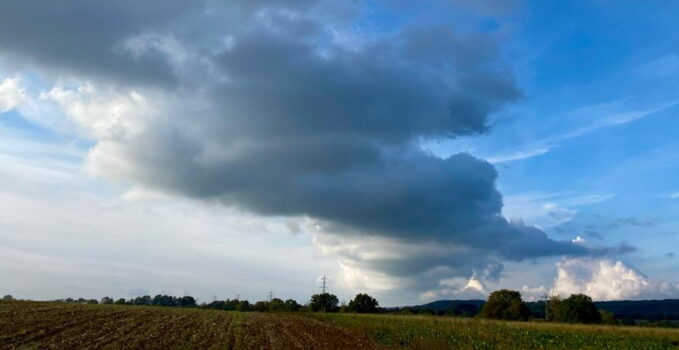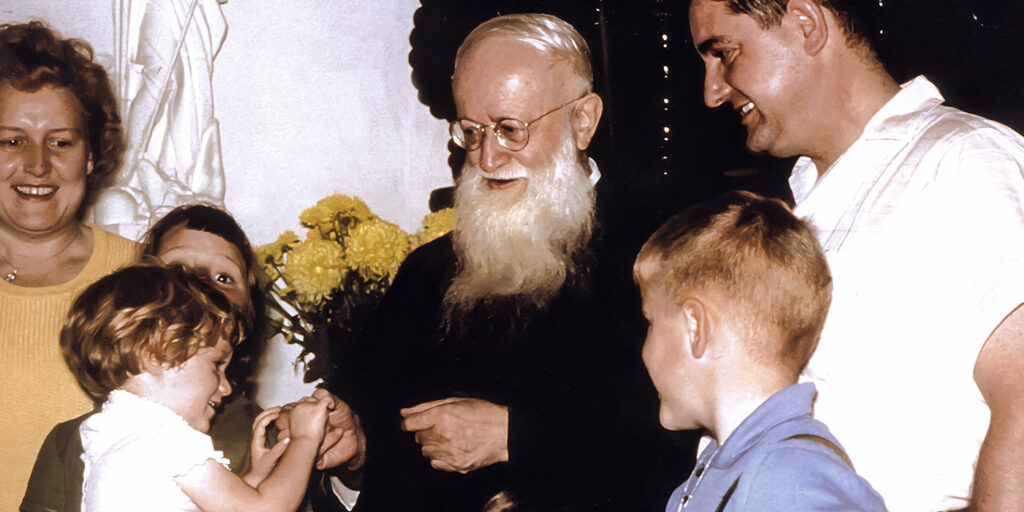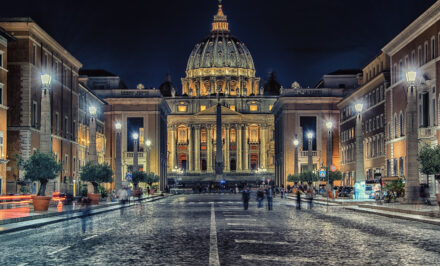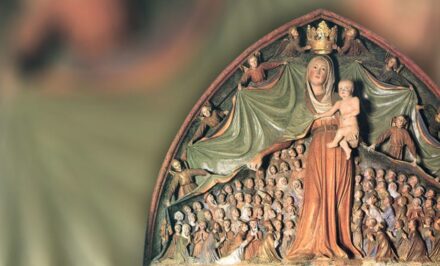Luciana Rosas, Brazil •
In light of all the discussions around the accusations involving Fr. Joseph Kentenich, the founder of the Schoenstatt Movement, and especially the way in which the issue has been handled in various Schoenstatt circles, including the General Presidium, it is absolutely necessary to start a dialogue and discussion about the issue of ‘abuse’ in Schoenstatt in an open, transparent, and objective manner. A lot has been said about sexual abuse — and rightly so, due to its effects on people’s lives and because, in general, it involves minors, which has criminal implications — but less importance is given to abuses of power and the manipulation of conscience in Schoenstatt and in the Church, generally. On the one hand, it is due to the difficulty in characterizing and proving the abuse, but on the other, it is because it seems to be far less devastating than sexual abuse. —
I feel that it is important to clarify the goals of this article and the reasons why it is necessary to amplify (or perhaps begin) the discussion about abuses that happen within the Schoenstatt structure.
- The feeling of “doing nothing” about the issue of the allegations against Fr. Kentenich regarding the progress of the work and the first impressions about the documents being accessed in the Vatican archive
- has been written, spoken, and debated extensively, but always from an “outsider” perspective, that is, people who examine the situation in a critical and analytic manner, but who have not experienced an abusive situation. I believe that it can be an important — and necessary — contribution to analyze the issue from the perspective of someone who has suffered this within Schoenstatt.
- We should begin to examine the issue of “abuse” not only from a sexual perspective, which generally implicates the male communities — but is not limited to them — but also the abuse of power and the manipulation of conscience, the difficulty in detecting and proving it, the extent and the huge impact this has on those who suffer from it — and especially — in the female communities. We need to speak about this.
Starting with a personal experience
It was as if a bomb had dropped on 1 July 2020. I had been told that the next day serious accusations would be published against Fr. Kentenich, regarding sexual abuse and the abuse of power and conscience. In fact, the focus was on the so-called “sexual abuse” that had allegedly been denounced, and no greater importance was given to the other abuses that were contained in the material that was about to be published.
It may seem narcissistic or even selfish to say that it was a bombshell for me, because it was a bombshell for the whole Schoenstatt Family. This has already been discussed in various valuable articles here on schoenstatt.org. For me, it became a frenzy of emotions because the news arrived at a time when I was dealing with the abuse of power and manipulation of conscience that I had suffered in Schoenstatt and I was experiencing the difficulties of doing this in 2020. Therefore, I would like to offer a contribution about this issue from the perspective of someone who has experienced it.
Everything became potentially bigger by watching how the issue unfolded in various Schoenstatt circles. Requests for transparency from all sides. Transparency. Openness. To look each one in the eye and relate the facts truthfully. Without masks. Respect for the Family, which should have resulted in sharing the sensitive issues within the heart of the family, so that we would not be taken by surprise with the news by third parties. Many of us felt betrayed. Including me.
Three months after this initial shockwave, it seems that we have made little progress on this issue. The request — or should I say the demand — for transparency seems to have fallen on deaf ears. Fr. Eduardo Aguirre, the postulator for Fr. Kentenich’s cause, has only been working on the Vatican archives for a few weeks and there is still very little news in this regard.
It also draws attention to the excessive focus on Fr. Kentenich’s canonization, as if it were more important to continue making progress on the cause for sainthood than to clarify the facts. The process for canonization is the result of the life of the founder of the Schoenstatt Work and the mission that the heirs of the Schoenstatt mission have taken up fully. Keeping this in mind, over and above historic clarifications and the opening and presentation of analyses and conclusions (and obviously the necessary documents on which these are based), one should have taken advantage of this open door that was forced open by Divine Providence to discuss elements in Schoenstatt that have not been sufficiently discussed and understood — and that were presented by the Church — that could lead to distortions in the application of principles that, of themselves, are absolutely valid.
This way of dealing with important and conflict-ridden issues introduces us to a sensitive issue and the cause of many conflicts in Schoenstatt, the so-called Schoenstatt secrecy.
Secrecy in Schoenstatt
 For those of us who have belonged to Schoenstatt for some time, the use of the term “secrecy” is nothing new. According to each person’s history and experience of Schoenstatt, at some point we encountered one (or various) ‘taboo’ issues.
For those of us who have belonged to Schoenstatt for some time, the use of the term “secrecy” is nothing new. According to each person’s history and experience of Schoenstatt, at some point we encountered one (or various) ‘taboo’ issues.
As described in the article Seven assumptions around the current discussion about Fr. Joseph Kentenich, the first point speaks about “opening up instead of covering up.” Secrets that are swept under the rug always elicit consternation and distrust when they are brought to light. This is what happened with the allegations against Fr. Kentenich and this is how it will continue until the leaders of the Family recognize that times have changed, that the way issues are handled must be appropriate to the current times. It is no longer possible to keep “secrets” as was the case 50 years ago. The ability to access information, as well as investigations and pressures to access public documents about Fr. Kentenich — that are currently only available in completely restricted environments within the communities, and generally only in German — will force us to force open closets that still remain closed.
Allegations of abuses suffered within the structures of Schoenstatt cannot be treated as taboo or as issues that should be “hidden” or whispered behind closed doors, with the intent of protecting the image of a community from others in Schoenstatt or the Church or in society. Treating documents in an abuse investigation as an internal document, not giving the victims access to all of the information collected on grounds that “these are the rules” no longer responds to current challenges. Rules. This does not respond to life. Secrecy is not sustainable and will not be sustainable in the future.
This is something that Wilfried Röhrig and Klaus Glas sum up so well, “Information and transparency are necessary for a community.” Especially for a family.
This Schoenstatt secrecy emerges from a current that I often describe as the “Schoenstatt catacombs.” And what are these catacombs? They are the “hidden” places where people feel free to express their opinions. There are still many behaviors, attitudes, and opinions that are shared in an institutional environment but are later contradicted in hidden environments, or are only shared in these catacombs.
As a collaborator of schoenstatt.org, an open Schoenstatt channel of information, I have already experienced how there is a lack of inner freedom in the simplest of things, such as commenting on an article or having an opinion. “What would my superior think? My group leader, my coordinator? What if they chastise me? And in the so-called catacombs, there is an exchange of opinion and contributions. Schoenstatt, a kingdom of freedom. Freedom for my neighbor, perhaps.
Secrecy is the lack of inner freedom. The new person in the new society of Schoenstatt should not, according to its own structures, require the catacombs where opinions are whispered.
Areas of concern for Visitator Stein and the current reality of Schoenstatt
Keeping in mind that the main purpose of this article, thinking about the allegations that have been made and all the discussion around this, the first question that always comes to mind is: Is it possible that the visitator Bernhard Stein really did not understand anything about Schoenstatt? Was he so infected by the “baccilus of mechanistic thinking” as one reads in the Epistola Perlonga written by Fr. Kentenich? Answering these questions is not an easy task, but it is necessary to open up this discussion and not to explain it simply as “he did not understand Schoenstatt” as we often hear in our circles or as a game in which there is Team Fr. Kentenich and Team Stein (Church).
1 Principle vs Application
In a talk by Ignacio Serrano del Pozo (Schoenstatt Men’s Union) to the Family in Rancagua, Chile (link in Spanish), he tries to explain the historical context for the accusations, the main points highlighted by Visitator Bernhard Stein in his report of the visit that took place from 19 to 20 February 1949. By reading what is described in the report, one can clearly see that the criticism is not in the principle, nor even the pedagogical principle, but its application and the misrepresentations that could result, as Ignacio points clearly in his explanation.
“The ‘Schoenstatt problem’ is not, primarily, of a dogmatic or doctrinal nature, but rather a pedagogical and practical one. (…) We need to draw attention to several dangers, deviations, and poor formation that this could have created, and has in fact been created, as a consequence of the practical application of the dogmatic principles and pastoral pedagogy that are, in and of themselves, not reprehensible” (Report of the first visit by Bernard Stein).
This should draw our attention as we now encounter the various allegations of abuse by the heirs of Fr. Kentenich’s mission. This is not to condemn the principle, but rather the way in which this principle is applied in relations between people, between authority and members of communities, between spiritual directors and members of the Schoenstatt Family.
The lack of understanding of the principle, or rather, the poor use of the principle, can inexorably result in authoritarian and abusive attitudes by those who have power, be this institutional (such as the superiors of communities), or moral (when there are relationships of trust between those who guide and those who allow themselves to be guided).
But the understanding of this issue can only be given to the extent that Schoenstatt as a whole is open to discussing the matter. One cannot work, clarify, and fight so that situations of abuse do not reoccur if there is no institutional openness for an open discussion about this sensitive matter. The reason for this is that the formation of spiritual directors — for example — in abusive environments may lead to the repetition of a pattern in the leadership of the branches of the Schoenstatt Family.
2Fatherhood x Inner Freedom
Another important aspect that was pointed out by Visitator Stein is in the relationship that Fr. Kentenich had with the community of the Sisters of Mary, basically because this was the largest and most consolidated community at the time. In this regard, the principle of fatherhood is questioned, as well as the centrality of the person of Fr. Kentenich in the community life of the Sisters of Mary, which may have led to a lack of inner freedom, because everything was submitted to the will of the “father.”
As Schoenstatters, we always say that we are part of a family, and as such, it should have father and mother figures. From the perspective of the principle, if this is well-formulated and applied, this should not lead to distortions. However, misunderstanding the principle may lead to an association of infallibility, either in the father or the mother, resulting in absolute, unquestionable and blind obedience, and the complete lack of freedom to question and present another point of view. What is this called? The lack of inner freedom, as Stein pointed out in his report, is described below:
“Time and again one observed the very characteristic lack of inner freedom, the lack of autonomy and insecurity in the Sisters of Mary. In fact, they are generally worthy people and a good many of them have a great intellectual capacity. However, their unity to the fascinating personality of the director of the Movement is so powerful and narrow that his decisions mean practice to the last degree. This radical attitude is, in part, in the real conviction of the personal infallibility of Fr. Kentenich, and to a certain extent, in a primitive and unhealthy ‘filiality’” (Report of the first visit by Bernhard Stein).
Therefore, it is worthwhile to expand and deepen the discussion about the visitation, looking beyond the veils that have often covered it or perhaps to reexamine the position where there is Fr. Kentenich on one side and Visitator Stein on the other.
Spiritual Abuse
It takes time to realize that one could be experiencing spiritual abuse. This idea is explored in the book The Subtle Power of Spiritual Abuse by David Johnson and Jeff Van Vonderen. Especially when the community — the family — does not act to protect and ensure that the abuses do not happen.
In this book, the authors examine the difficulties of understanding the abuse suffered and the difficulties in denouncing it:
- In an abusive system, it is said that you are the “problem” when you notice a problem;
- Speaking out about the abuse makes you feel that you are being disloyal to the family, the Church, and even God.
- Those who have experienced spiritual abuse as something “normal,” have lost the notion of what is really normal and that is why it seems like an exaggeration to describe the situation suffered as “abuse;”
- Human denial is also a difficulty. Denial is an ability that God gives us to delay the impression of a strong emotional, psychological or spiritual pain;
- Repression happens because the experience is beyond anything that one has the ability to process conscientiously;
- Shame in admitting that we allowed ourselves to remain in a clearly abusive environment.
I would hazard to add to more elements: fear and rejection. Contrary to what we often read about support for the victims, the fear of denouncing abuse and the rejection of the one who created the abuse and the one who allowed the abuse — who in many ways has a greater responsibility than the abuser — is an incredibly profound factor.
It is absolutely necessary to speak about the abuse of power and the manipulation of conscience in religious circles in Schoenstatt, because it is from these abuses that the sexual abuses that are denounced occur. And these abuses happen because of the extreme trust that the abuser is a representation of the divine. Also the feeling of blame that comes from the person who suffered the abuse.
Therefore, there is a clear call to unpack the allegations against Fr. Kentenich — which should be clarified in a decisive and documented way — for the understanding and discussion about which of the points raised by the Church were insufficiently explored and studied in Schoenstatt and that today have allowed for distortions in the application of the pedagogical principles of Schoenstatt.
Family?
Very often I have asked myself this: Are we really part of a family? Or are we treated like small children, infantalized, as if we do not have the critical ability to receive and process certain information? What are the criteria — and who determines them — that some issues are accessible by the members of the Schoenstatt Family but others are not?
If we are a family, we belong to a circle of trust in which all of these questions are welcomed and discussed in love, freedom, and mutual respect. To put a lid on any issue is not the same as resolving it. On the contrary, it creates more distrust and disinformation. If we present ourselves as a Family, we need to increasingly practice the basic principles of the family environment: peace with who we are, trust in sharing our questions (whatever they may be) and transparency in dealing with issues.
Opportunity to review ways of acting as the spiritual heirs of Fr. Kentenich
By examining the allegations presented against Fr. Kentenich objectively and maturely — and we are still waiting for a formal posture about the progress of the current work — we can see this as an invitation from God for us as heirs of the mission to review our ways of acting. Especially for those who hold positions of responsibility in guiding others in Schoenstatt.
I believe that this is a direct invitation by Divine Providence. We can perhaps take away this reinforced focus on the canonization (which more than the cause is a consequence) and take advantage of this time to grow and mature as a Schoenstatt Family.
Starting with the assumption that the problem is not in the principle, but in practice, we can clearly understand that we still have a long way to go in Schoenstatt. I hope that God’s invitation can be accepted and experienced fully. May we be a beautiful place in which the principle of truth and transparency reign.
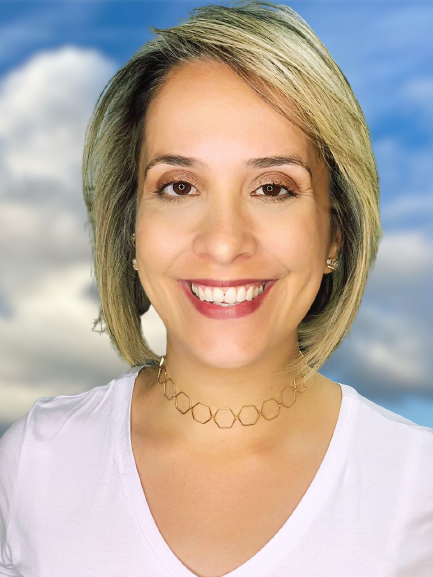 Luciana Rosas is 39 years old and lives in Curitiba, Brazil. She is an economist and aspiring psychologist. She is a translator and social media manager for schoenstatt.org.
Luciana Rosas is 39 years old and lives in Curitiba, Brazil. She is an economist and aspiring psychologist. She is a translator and social media manager for schoenstatt.org.
She has been a member of the Schoenstatt Movement since 1994. She is active in areas that promote women, the inclusion of minorities and human rights. She is currently studying the impact of marginalization in the Church, especially on issues of moral and sexual abuse, and the abuse of power and conscience. She is a dreamer and a fighter. She is passionate about Schoenstatt and freedom.
Original: Portuguese, 22.10.2020. Translation: Sarah-Leah Pimentel, Cape Town, South Africa


